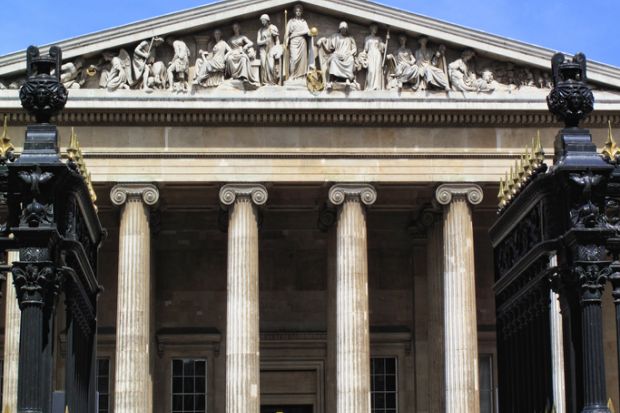A major new research programme, for which the Arts and Humanities Research Council has been awarded £14.5 million, should enable researchers to produce “new types of history”.
Scholars can face huge challenges if they want to study topics where valuable source material is scattered widely across the UK’s museums, libraries, galleries and archives. Although academic, local and family historians have long been interested in the history of coal mining, said Tim Boon, head of research and public history at the Science Museum, “at the moment you certainly can’t call together all the British collections to do with the history of coal mining”. While there were important collections in both the north-east of England and south Wales, for example, it was “very difficult to compare the cultures of the coal fields” in the different areas.
The major new Towards a National Collection initiative, funded through a £18.9 million investment by UK Research and Innovation’s Strategic Priorities Fund and delivered by the AHRC, is designed to address such difficulties head-on through a five-year programme to create a unified virtual “national collection”.
Dr Boon is principal investigator on The Congruence Engine: Digital Tools for New Collections-Based Industrial Histories, one of five “Discovery Projects” that make up the new programme. His strand would start with textiles – and specifically the wool industry – and then move on to energy and communications. In each case, he explained, new artificial intelligence technologies would break down barriers between collections of different kinds, allowing much richer comparative work drawing on “artifacts, images, documentary films and written archives”, not to mention “the fantastic site surveys of industrial buildings and aerial photographs” held by Historic England.
“Linking similar objects together,” concluded Dr Boon, “will allow both amateur and professional historians to write types of history that haven’t been possible before”.
Towards A National Collection, the largest programme of its kind yet to be undertaken anywhere in the world, brings together 15 universities and 63 heritage collections and institutions of various sizes, with more than 120 individual researchers and collaborators.
Other Discovery Projects will consider areas not covered by The Difference Engine.
Unpath’d Waters will play a similar role in bringing together material relating to marine and maritime history across the UK. Our Heritage, Our Stories will explore the vast quantities of community-generated digital content and will lead to the creation of a major public-facing observatory at the National Archives. Transforming Collections will examine what it means for established national collections to address structural inequalities in the arts, engage with debates about contested heritage and pay closer attention to the contentious histories embodied in objects. Meanwhile, The Sloane Lab will build a digital lab focussing on the vast collections of Sir Hans Sloane – the foundations of the British Museum, British Library and National History Museum – now held in public institutions. It is also designed to facilitate discussion on the ways that the national collection has been shaped by imperialism, colonialism, slavery, loss and destruction.
The “driving mission” of the whole programme, claimed director Rebecca Bailey, was to “open up global access to the UK’s world-class collections”. It should also play an important role in “dissolv[ing] the disciplinary silos that exist in universities and public collections”.
Register to continue
Why register?
- Registration is free and only takes a moment
- Once registered, you can read 3 articles a month
- Sign up for our newsletter
Subscribe
Or subscribe for unlimited access to:
- Unlimited access to news, views, insights & reviews
- Digital editions
- Digital access to THE’s university and college rankings analysis
Already registered or a current subscriber? Login








